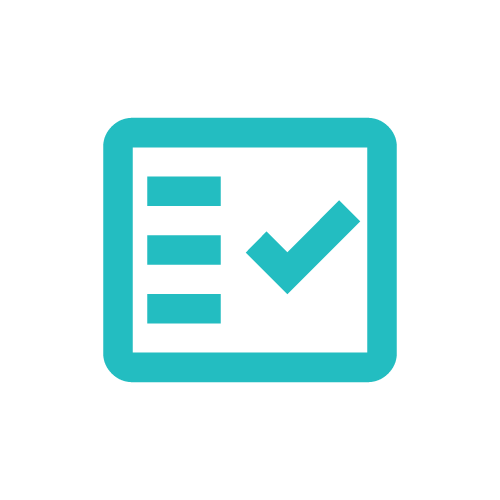
Health informatics is a rapidly growing field that sits at the intersection of healthcare, information technology, and data management. As the healthcare industry increasingly integrates technology-powered solutions like electronic health records (EHRs), telemedicine, and data-driven healthcare tools into everyday practice, the demand for skilled professionals in health informatics continues to boom. Health informatics experts play a key role in optimizing healthcare delivery, improving patient outcomes, and enhancing operational efficiency through the use of advanced technologies and data analytics.
In this post, we’ll explore the wide range of career opportunities available in the field of health informatics and the qualifications needed to pursue them. Whether you’re interested in data analysis, healthcare management, or technology integration, a career in health informatics begins with setting yourself on the right educational path. Gaining an understanding of the skills and knowledge required can help you decide if a future in this evolving industry is the right fit for you.
Understanding Health Informatics
Applying information technology and data management techniques to improve patient outcomes and overall healthcare system efficiency, health informatics tools are making an enormous impact on the way people provide and receive care. Digital systems and data-driven strategies are increasingly used to collect, store, and analyze patient information, enabling healthcare providers to make more informed decisions and deliver higher-quality care.
Health informatics tools also help streamline healthcare processes, making systems more efficient and reducing the risk of errors. From EHRs to telemedicine platforms, health informatics ensures that patient data is accessible to authorized providers while maintaining security and confidentiality. A reliable, secure exchange of information allows for better coordination of care, quicker interventions, and improved patient safety.
A degree in health informatics opens the door to a wide range of impactful careers. Whether you’re interested in clinical data analysis, healthcare management, or IT systems design, your degree will position you at the forefront of innovation in the industry, making it a dynamic and rewarding field to enter.

What Can You Do with a Health Informatics Degree?
A degree in health informatics paves the way for a variety of roles that merge healthcare, technology, and data management skills. With a health informatics degree from National University, you can pursue rewarding roles that range from data analysis and systems management to healthcare administration and IT leadership. Below, let’s explore some of the key positions available in this dynamic field, along with their educational and skills requirements.
Health Informatics Specialist
Synthesize and manage health data, implement EHR systems, and ensure healthcare information systems meet regulatory standards.
- Skills Required: Data analysis, knowledge of healthcare regulations (e.g., HIPAA), proficiency in health IT systems.
- Educational Requirements: Bachelor’s degree in healthcare administration, health informatics, or a related field; many professionals also hold a master’s degree in health informatics.
- Average Base Salary: $76,200 per year (source: PayScale).
Clinical Informatics Analyst
Analyze clinical data and optimize existing systems in order to improve the quality of patient care.
- Skills Required: Strong analytical skills, understanding of clinical workflows, experience with clinical software systems.
- Educational Requirements: Degree in health informatics or a clinical field with specialized training in informatics.
- Median Total Pay: $146,000 per year (source: Glassdoor).
Health Information Manager
Oversee the maintenance and security of patient records, manage health information systems, and ensure compliance with healthcare regulations.
- Skills Required: Leadership, organizational skills, knowledge of health information technology.
- Educational Requirements: Bachelor’s degree in health information management; may pursue certification such as the Registered Health Information Administrator (RHIA) credential.
- Median Annual Salary (2023): $110,680 per year (source: Bureau of Labor Statistics).
Informatics Nurse Specialist
Improve nursing workflows, implement EHR systems, and train nursing staff on new technologies.
- Skills Required: Clinical nursing experience, technical skills, knowledge of healthcare informatics systems.
- Educational Requirements: Nursing degree and experience as a registered nurse (RN), with additional education in health informatics or nursing informatics.
- Average Base Salary: $91,200 per year (source: PayScale).
Health Data Analyst
Collect, analyze, and interpret health data to inform decisions and improve healthcare outcomes.
- Skills Required: Strong data analysis skills, proficiency in statistical software, understanding of healthcare metrics.
- Educational Requirements: Degree in health informatics, data science, or a related field, with additional training in healthcare data analysis.
- Average Base Salary: $70,100 per year (source: PayScale).

Educational Requirements
A career in health informatics typically begins with a bachelor’s degree in health informatics, computer science, or a related field such as healthcare administration or information technology. At the undergraduate level, you’ll be introduced to foundational topics in healthcare systems, data management, and information technology. This provides the basic skills needed for entry-level roles like health informatics specialist or data analyst.
Many professionals in the field choose to advance their careers by pursuing a graduate degree, such as a Master of Science in Health Informatics or a Master of Public Health (MPH) with a focus on informatics. These advanced programs provide a more concentrated exploration of topics like clinical decision support systems, health data analytics, and healthcare policy. Earning a master’s degree can open up opportunities for leadership positions like health information manager, clinical informatics director, or chief information officer (CIO).
If you’re interested in a career in research, academia, or high-level policy development, pursuing a doctoral degree such as a Doctor of Health Administration, a PhD in Technology Management, or a PhD in Data Science offers the opportunity to specialize your studies toward health informatics further. The doctoral pathway also emphasizes innovation, allowing you to contribute impactfully to the evolution of healthcare technologies and systems.
Certifications
Beyond earning a degree in health informatics, obtaining relevant certifications in the field can significantly enhance your career prospects. The Certified Health Informatics Systems Professional (CHISP) certification is designed for those who want to demonstrate their expertise in health IT systems and information management. This credential highlights your proficiency in areas such as data analysis, health IT regulations, and system implementation, making you more competitive for advanced roles.
Another valuable credential is the Registered Health Information Administrator (RHIA), which validates your skills as a manager of health information and medical records. The certification boosts your qualifications and can help you stand out as a job candidate if you’re looking to oversee health information systems in hospitals or other healthcare settings. Similarly, the Certified Professional in Healthcare Information and Management Systems (CPHIMS) is another widely recognized credential that demonstrates your expertise in managing healthcare information systems.

Skills Required for Success in Health Informatics
Data Analysis and Interpretation
The ability to analyze and interpret large volumes of healthcare data is critical for informing decision-making and improving patient outcomes, as it enables healthcare providers to identify trends, predict health risks, and personalize treatment plans for patients. You’ll need proficiency in statistical tools and software such as SQL, Python, R, and Excel to manage and analyze complex data effectively. Mastering these tools will be a central component of earning your degree in health informatics. In turn, you’ll graduate with the technical skills to extract data-driven insights and enhance healthcare delivery.
Technical Proficiency
A firm grasp of health information technology systems, such as electronic health records (EHRs), clinical software, and data management platforms, is essential for anyone pursuing a career in health informatics. These systems are the backbone of modern healthcare operations, and learning how to use them effectively is a key focus of the health informatics curriculum at National University. Staying aware of new industry-wide technological advancements is also important for professionals in this field as healthcare IT continues to evolve rapidly.
Understanding of Healthcare Systems
Effectively managing health information in a secure and lawful manner means having a solid understanding of healthcare operations, regulations, and compliance measures such as HIPAA. Familiarity with clinical workflows and the healthcare delivery process is equally important, as it will allow you to design systems that align with both provider and patient needs as a health informatics professional. Your studies will cover these critical areas and more, equipping you with the knowledge to navigate regulatory environments while optimizing data systems to reach organizational goals.
Communication and Collaboration
Health informatics professionals need strong communication skills to ensure effective teamwork when collaborating with multidisciplinary teams that include healthcare providers, IT specialists, and administrators. Your role in translating complex technical information into clear, understandable terms for non-technical stakeholders is critical to ensuring that you and your colleagues can make informed decisions. An education in health informatics teaches these universal communication skills, helping you convey key insights and collaborate effectively.
Problem-Solving and Critical Thinking
The critical thinking and problem-solving skills you’ll hone through your studies will enable you to recognize issues within health information systems and develop impactful, data-driven solutions to operational challenges. As a health informatics professional, you must be able to analyze complex situations, troubleshoot system inefficiencies, and implement necessary changes. Earning a degree in the field will teach you to adapt to the fast-paced and ever-changing nature of the healthcare industry, remaining ever-agile and responsive to new obstacles and technologies.

“Before you jump in and ‘fix’ a data problem, conduct a structured systems analysis so you understand what every hidden component actually does. The more pieces of reliable information you feed into a decision, the less likely you are to create an unintended, and potentially dangerous, consequence.”

Shape the Future of Healthcare with a Career in Health Informatics
Health informatics offers diverse career opportunities that allow you to make a meaningful impact on the future of healthcare. Driven by advancements in technology, data analysis, and healthcare delivery, the industry continues to grow, and the demand for skilled professionals is higher than ever.
If you’re interested in contributing to this dynamic field, exploring educational and certification pathways is a great first step toward building a successful future in health informatics.
Learn more about National University’s Master of Science in Health Informatics degree here or explore our other relevant academic programs to help carve out a rewarding career path in an emerging field.
Additional Resources:
- American Medical Informatics Association (AMIA)
- American Health Information Management Association (AHIMA)
- Healthcare Information and Management Systems Society (HIMSS)
- American Nursing Informatics Association (ANIA)
- Office of the National Coordinator for Health IT
- Clinical Informatics at the College of American Pathologists
- Division of Health Informatics Technologies at the U.S. Department of Health and Human Services
- Department of Clinical Research Informatics (DCRI) at the NIH Clinical Center

This content has been reviewed and approved by the National University Editorial Advisory Board. Learn more about our editorial process.